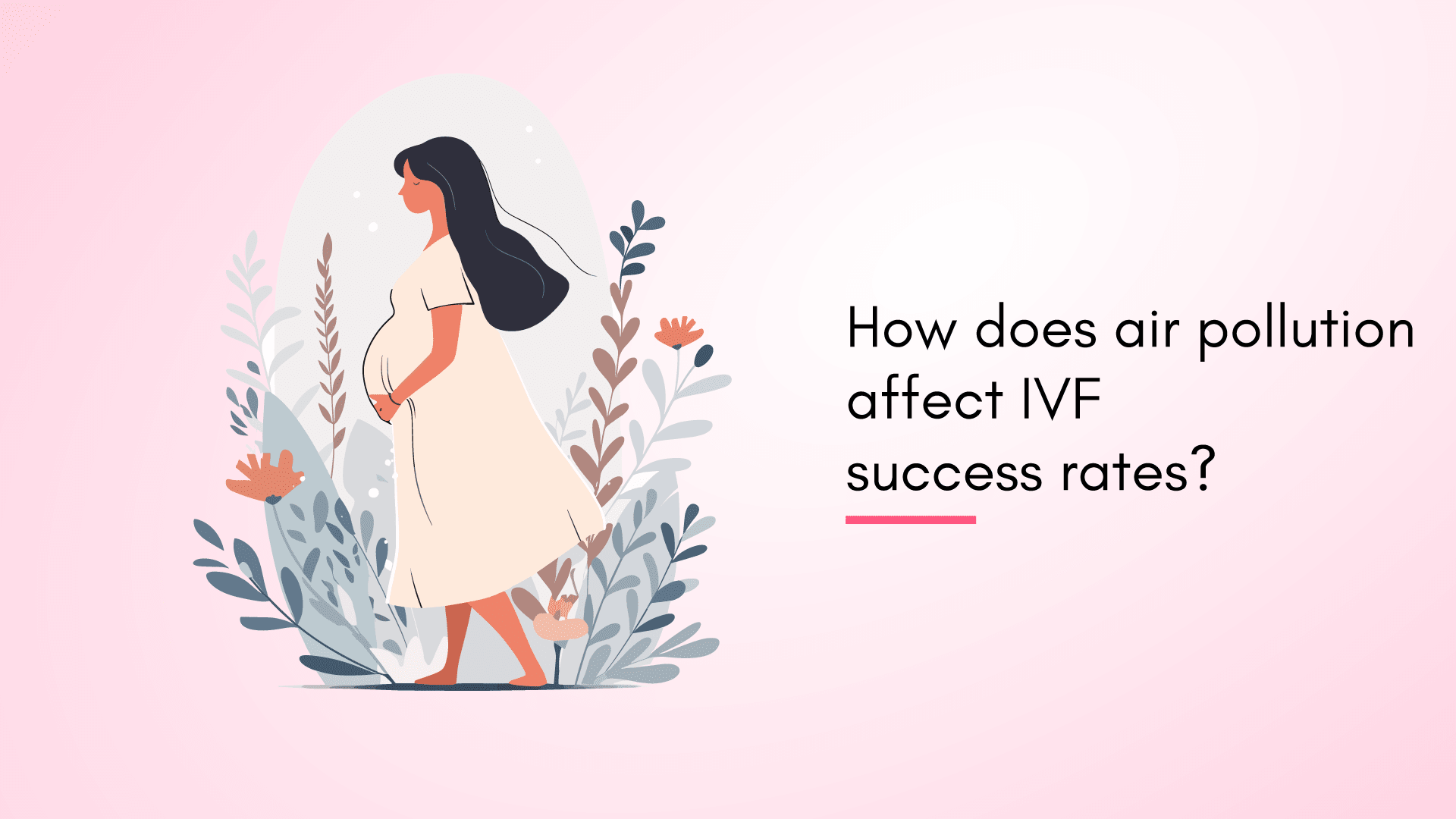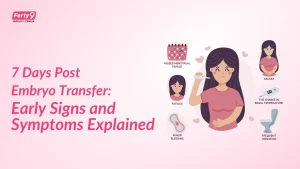Have you ever wondered if the air you breathe could impact your chances of having a baby through IVF? As pollution levels rise globally, the link between pollution and fertility is becoming a major concern for many couples. Understanding how environmental factors like pollution affect reproductive health and IVF success rates is crucial. This blog will explore how pollution can impact fertility and the effectiveness of IVF treatments.
Impact of Air Pollution on Reproductive Health
We often think of air pollution in terms of coughing, wheezing, or the occasional runny nose. But the tiny particles and gases we inhale can also seep into our reproductive systems, leading to more profound health implications.
Air pollution and health are interconnected, with pollutants such as particulate matter (PM), nitrogen dioxide (NO2), sulfur dioxide (SO2), carbon monoxide (CO), and ozone (O3). These pollutants can have wide-ranging effects on human health, including the reproductive system.
For women, it can lead to menstrual irregularities, reduced ovarian reserve, and an increased risk of miscarriage. For men, air pollution can negatively affect sperm quality, reducing fertility. Let’s explore these impacts in more detail.
How does Air Pollution Affect IVF Success Rates?
Air pollution can interfere with various stages of the IVF process, reducing its chances of success. Let’s break it down:
Decreased Ovarian Reserve
Your ovarian reserve, essentially your supply of eggs, is crucial for fertility. Studies have shown that exposure to high levels of air pollution can significantly reduce ovarian reserve. Pollutants such as PM2.5 (particulate matter with a diameter of less than 2.5 micrometers) and Ozone (O3) can damage the ovaries, leading to a lower number of viable eggs. This impact of pollution on fertility makes it harder to retrieve enough high-quality eggs during IVF, thereby lowering the chances of success.
Increased Risk of Miscarriage
You might think that once you’re pregnant, the journey gets easier. Unfortunately, research suggests that women exposed to higher levels of air pollutants, especially during the early stages of pregnancy, have a higher likelihood of miscarriage. The exact mechanisms are not entirely understood, but it is believed that pollutants can cause inflammation and oxidative stress, leading to adverse pregnancy outcomes.
Poor Egg and Sperm Quality
Air pollution can impair both egg and sperm quality. For women, pollutants can affect egg development, while for men, they can reduce sperm count, motility, and morphology. Poor egg and sperm quality can significantly lower IVF success rates.
Impaired Endometrial Function
The endometrium is the lining of your uterus, and it’s where the embryo implants and grows. Think of it as the soil where a seed is planted. If the soil isn’t fertile, the seed won’t grow well. Air pollution can make the endometrium less receptive, altering gene and protein expressions needed for implantation. This impairment can lead to implantation failures, a significant hurdle in IVF.
Disruption of Hormonal Balance
Hormones are the body’s messengers, and any disruption can throw the whole reproductive process off balance. Pollution and fertility are closely linked, as exposure to certain chemicals can mimic or interfere with the body’s hormones, affecting ovulation, sperm production, and overall fertility. This disruption can negatively impact IVF outcomes.
Increased Oxidative Stress
Oxidative stress is like rusting from the inside. It occurs when there is an imbalance between free radicals and antioxidants in the body. Air pollution is a significant source of free radicals, which can cause oxidative damage to reproductive cells and tissues. Increased oxidative stress can lead to DNA damage in eggs and sperm, impairing their quality and reducing IVF success rates.
By addressing environmental toxins and infertility and focusing on overall health, you can improve your chances of a successful IVF outcome and move forward with greater confidence.
Which Pollutants Are Most Harmful to IVF Outcomes?
Several air pollutants are known to impact fertility. Among the most concerning are:
- Particulate Matter (PM2.5 and PM10): Higher concentrations of PM10 and PM2.5 are linked to increased miscarriage rate and may affect sperm concentration, count, and motility
- Nitrogen Dioxide (NO2): Commonly found in vehicle emissions, NO2 can affect both ovarian reserve and sperm quality
- Sulfur Dioxide (SO2): SO2 exposure may potentially impact sperm quality and fertility
- Carbon Monoxide (CO): If you’re exposed to CO, especially from smoking, it could increase your chances of pregnancy loss and affect reproductive health
- Ozone (O3): O3 exposure is linked to lower live birth rates in IVF and can also impair the quality of semen in males
Ways to Mitigate the Effects of Air Pollution on IVF
Despite the challenges, there are various strategies you can adopt to protect your reproductive health and improve your chances of IVF success in the face of pollution and fertility issues.
Improve Indoor Air Quality
- Remove pollutants from indoor air by using purifiers with HEPA filters
- Keep windows and doors closed during high-pollution days
Monitor Air Quality Levels
- Use apps and websites to check daily air quality levels
- Plan outdoor activities when air quality is good
Adopt a Healthy Lifestyle
- Eat an antioxidant-rich balanced diet to combat oxidative stress
- Drink plenty of water to detox your body
- Engage in moderate exercise regularly to boost overall health
Use Protective Gear
- Wear masks designed to filter out any particulate matter when pollution levels are high
- Use devices to track indoor pollutant levels
Reduce Environmental Exposure
- Avoid spending time in areas with high traffic and industrial emissions
- Choose living and working spaces away from major sources of pollution
Modify Outdoor Activities
- Schedule outdoor activities in the morning, when pollution levels are typically lower
- Avoid heavy physical exertion during peak pollution times
Taking these steps can offer hope, ensuring a healthier environment for your IVF journey and increasing your chances of success.
Conclusion
Air pollution is an undeniable threat to reproductive health, and its impact on IVF success rates cannot be ignored. By understanding how pollution affects fertility and taking measures to mitigate its effects, you can improve your chances of achieving a successful pregnancy. Remember that every step taken towards cleaner air is a step towards a healthier future for you and your family. For additional support and guidance tailored to your IVF journey, Ferty9 Fertility Clinic is here to help. Reach out to us today, and let us be part of your path to a brighter tomorrow.




























